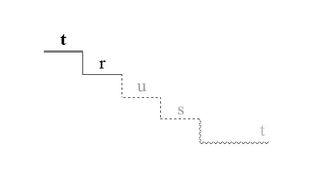Psychiatry
The Psychological Pandemic That Never Was: Rx for Change
Four lessons from the pandemic from a psychiatry researcher’s perspective.
Posted May 3, 2021 Reviewed by Jessica Schrader
Key points
- Most psychological research during the COVID-19 pandemic was flawed with cross-sectional design and self-report in self-selected respondents.
- This research lacked an ability to distinguish distressed from disordered.
- Editors and science journals deployed a weakened and rushed peer-review system.
- Politics appeared to play a bigger role than usual in the creation and interpretation of studies.

The behavior of researchers, editors, and journalists during the COVID-19 pandemic highlighted big problems that need attention at an individual level and at an organizational level. My previous eight posts on this topic summarized the key problems with evidence and examples. This post summarizes the key points with prescriptions on what might be done.
1. Vast majority of research was hardly research at all
An objective review of the evidence shows there has not been a psychological pandemic. Human psyches are not that fragile. In my first posts in the series, I described the inferior research methods that were used in the pandemic (Nov. 6 and 20, Dec. 2, 15, and 31, 2020 and Feb. 2, 2021 posts). Self-report questionnaires given to a self-selected sample of respondents in cross-sectional design studies cannot distinguish normal distress from abnormal disorder. One mini-questionnaire slapped into a social media app was one too many. This “feel-good research” provides no real important new knowledge. The studies showed that more people than usual were distressed, but not disordered, which does not make a psychological pandemic.
Rx: These cross-sectional study designs with self-selected samples of respondents ought to be re-named psychology polls, because they reveal no more truth than the typical unreliable political poll. Actually, they are worse than polls because everyone knows polls are opinions of a self-selected group that omits the population that is too busy working and living to take the time for a poll. These cross-sectional studies of self-report in self-selected respondents fly under the guise of research and tarnish the integrity of the profession. Budding researchers, editors, and journalists need to realize that a brief self-report survey in a cross-sectional design is to actual research what cheap vinyl is to leather, and they need to present it that way to the public.
2. It was too easy to publish flawed research
Psychiatry and psychology mobilized a large infrastructure of researchers, journals, and science writers. The pandemic demonstrated that there are many individuals ready and willing to conduct research and journals willing to publish rapidly. That’s something to be proud of in the sense that there is interest, energy, and a robust infrastructure that didn’t exist in the world 80 years ago. But, unfortunately that infrastructure was wasted on simple, cheap, fast, and uninformative cross-sectional, self-report questionnaire studies. We wanted filet mignon, but we got round steak. The truth was MIA while we got “garbage in, garbage out” (Feb. 21, 2021 post). Dozens of research studies and hundreds of media stories were published with false conclusions about a psychological pandemic.
Rx: Editors and journals are the gatekeepers. The garbage gets published only if the editors agree to publish it. Editors don’t get a lot of attention, but perhaps that needs to change. There needs to be a better system of holding editors and journals accountable. Retraction Watch has made progress in bringing editorial decisions more into the light, but other efforts are sparse and scattered.
3. Politics played a bigger role in science
Personal politics has always had influence in much psychology research (Feb. 21, 2021 post). This is not new, but it was massively on display during the pandemic. The idea of a psychological pandemic seemed decided before it was studied. The disturbing possibility is that individuals tried to leverage psychological research into a weapon to support their beliefs about viral science they either didn’t understand or didn’t agree with, based on their beliefs about liberal versus conservative politics. It’s disturbing to consider the possibility that much psychological research is “soft” on purpose so that it is more easily manipulated.
Even if some researchers are not able or willing to see the slant in their motives and their interpretations of data, others can see it. When these slants occur and are not called out, the moral authority of the entire profession of scientists is diminished. When these slants happen in great frequency, the public wonders why they should trust researchers ever. Peer review is supposed to prevent these slants, and usually does a good job. But the enormous growth over the past 30 years in the number of new researchers in the field, the number of new journals, and the number of studies being submitted to journals has magnified the problem of how to monitor quality.
Rx: Critics of the peer-review system are increasingly calling for reforms with pre-print servers and mass, public, open, and non-anonymous reviews of manuscripts. In my opinion, those only weaken the review system. Peer-review by the mob will result in science that pleases the mob, and scientists can’t seem to realize that they’re part of the mob. Anonymous peer review by experts that reaches a balanced judgment needs to be strengthened, not weakened.
4. Science learning disability among researchers and journalists
In my opinion, the pandemic added some clarity that some individuals simply are not able to understand science. At first blush, I know that sounds patronizing, but it’s no more patronizing than admitting that some people are not good at math, music, or sports (March 31, 2021). If we’re going to truly understand why so much disinformation was spread, we have to accept that some individuals (including some journalists and scientists) who report research are not adept at it, and we need to push back a bit on those individuals and criticize them, just like we would criticize a bad teacher.
Rx: I can’t tell people who are bad at something to stop doing it. But we don’t have to quietly tolerate them. I send feedback to journalists. I tweet. I blog. We can all push back just a bit in our daily lives.
Conclusion
There has been enough evidence since July 2020 to refute the notion of a psychological pandemic. The evidence since then has gotten only stronger that the psychological pandemic never was and is not emerging. Yet, the inferior research studies keep coming. It appears to me that much of what was published was never meant to be accurate; it was meant to support the most useful beliefs.
As researchers, and as clinicians who rely on this science, we must keep our eyes on the long game, which is trust and integrity in science. People need to feel they can trust central guiding forces, whether those are institutions, professions, or reputable individuals. If they can’t trust researchers, the vacuum will be filled with something else that is nothing good. The short game of scoring points for one’s personal beliefs or political views is destructive and divisive (e.g., scientific journals endorsing U.S. political candidates).
The methods of the long game have to change, however, from what they used to be over the past century. Transformation, fluidity is the nature of modern civilization. Pre-civilization, our ancestors were small bands of people that relied mostly on superstition and beliefs. Then institutions arose that we trusted, more or less, and a science class arose that was able to replace superstition with true understanding in many situations. The world seemed more explainable for a while. Then the internet and social media arose, which was gasoline for ideology and misinformation. The old monsters of superstition and beliefs found new ways to expand over the land, whether through malice or desperation. Those who care about science, who write about science, must adapt.




